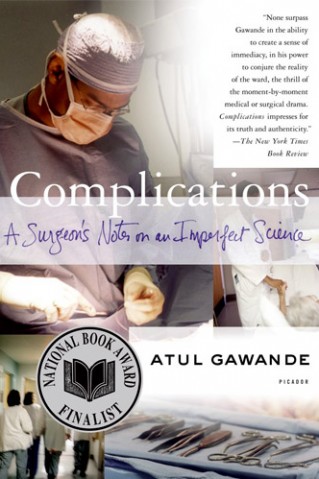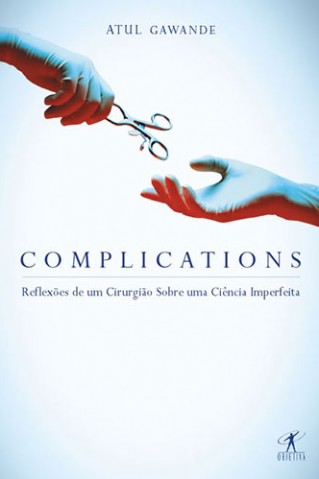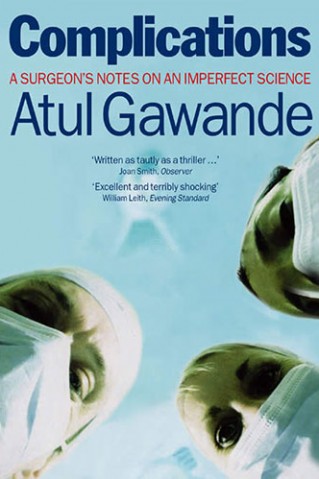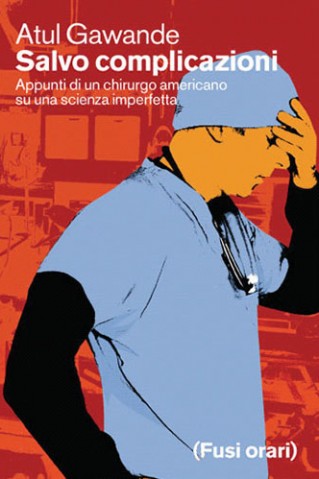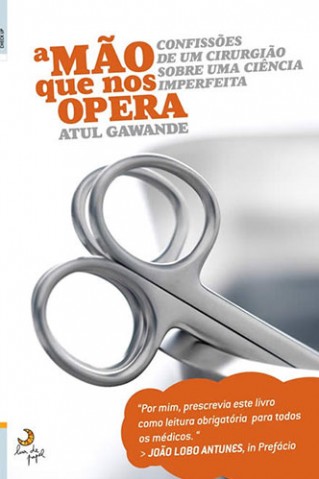An interview with Atul Gawande
by John Freeman, May 5, 2002
Seven years ago, Atul Gawande faced a crucial moment in his medical training. The student, who had never operated before, was observing an abdominal procedure when it came time to make the first incision. “The patient was put under, the belly exposed. And then, the nurse handed me the knife,” he recalls with a laugh, reliving the nervous thrill that went through him. “I picked it up and drew it across the skin. It was a lot tougher and springier than I thought it would be, so I had to cut twice.
Still, I was exhilarated,” he said. “There is something about the feeling that you are entering a world that others don’t get to see – and that slightly sickening feeling of sticking a knife into somebody.”
Gawande, 37, who spoke by phone from Brigham and Women’s Hospital in Boston, is in his last year of surgical residency. While he recently overcame his queasiness, he hasn’t lost his sense of wonder.
In “Complications: A Surgeon’s Notes on an Imperfect Science” (Metropolitan Books, 288 pages, $24), a collection of 14 pieces, some of which were originally published in The New Yorker and Slate magazines, Gawande uses real-life scenarios – a burned-out doctor who refuses to quit; a terminal patient who opts for risky surgery, with fatal results – to explore the larger ethical issues that underlie medicine. He asks: How much input should a patient have? How can young doctors gain hands-on experience without endangering lives? And how responsible are these doctors for their mistakes?
The son of two physicians, Gawande attended Oxford on a Rhodes scholarship, then worked in a research laboratory and as an adviser to the Clinton administration on health policy before earning his M.D. in 1995. (“I guess I always knew that I’d eventually come around to it,” he says.) Soon after, Slate editor Jacob Weisberg, a friend, approached him about writing a column on being a doctor. Gawande had never tried journalism before and struggled with it at first, though he says he enjoyed the process. “A lot of the topics I ended up writing about came from experiences that I didn’t understand or that bothered me. They were often things patients ask about and I don’t have answers for, and I wanted to get answers.”
Many readers will blanch at the cases Gawande describes, like the surgeon who biopsied the wrong part of a woman’s breast, delaying her cancer diagnosis by 18 months. Other failures are his own: He once needed to perform an emergency tracheotomy, a procedure he had little experience with, under time pressure. His hesitation, he admits now, nearly cost the patient her life.
While “Complications” is full of tragic errors and near misses, the book is not intended to be an expose. Rather, Gawande asserts, it is meant to deepen our understanding of the intricacies of medicine. “In most medical writing, the doctor is either a hero or a villain,” he says, with an edge in his voice. “What I am trying to do is push beyond that and show how ordinary doctors are – and at the same time show that what they can do is extraordinary.”
In a section called “Mystery,” the author revisits cases that continue to baffle him, such as a woman whose initially unremarkable morning sickness persisted until the day she gave birth. Throughout the book, Gawande suggests that no complaint or treatment is routine. “During a surgeon’s career, there is a lot of uncertainty about exactly what to do,” Gawande explains. “You’d love for there to be clear guidelines for everything, but that’s not the case.”
Gawande has experienced the limitations of his profession not only as a surgeon, but as a parent. During the first month of his residency, his newborn son, Walker, suddenly went into heart failure. “I had to go straight from assisting in the ER to the hospital across the street, where doctors explained to me what my son had to do to survive,” Gawande remembers. Walker recovered, and while he will need another surgery soon, the boy is expected to live a full, healthy life.
Because he works at the hospital up to 110 hours a week, Gawande has to squeeze in his writing on nights and weekends. He says his long hours allows him to digest new experiences. And as he emphasizes in “Complications,” ambiguous and problematic situations arise with alarming frequency: “Last week, I operated on a woman in her forties who had a tumor in her abdomen. We opened her up and found the thing was huge. It had latched onto everything; we couldn’t get it out. So we sewed her back up, and I had to sit down and explain to her that this was, well, it was the end of the line. At the end of this conversation, she just sat there looking at her belly. There was our incision, which had been no good whatsoever. And she asked me, “Did you do that?’ And I said, “Yeah, I did.’ And she said, “It’s beautiful.’”
Gawande retreats into himself for a moment. Finally, he says, “While I hadn’t done any good for her, there are those moments. It certainly does affect you.”
John Freeman, Copyright (c) 2002 The Denver Post.

